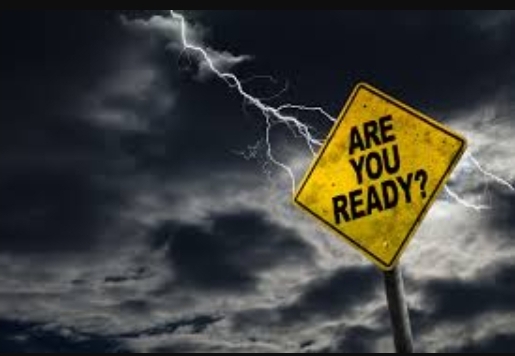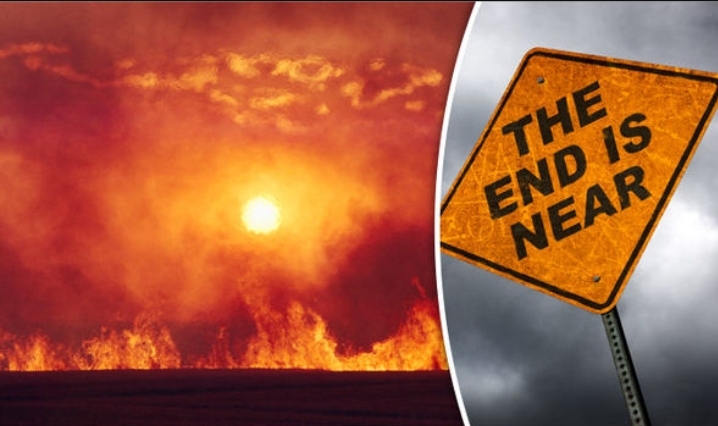
Website - https://encrypted-tbn0.gstatic.com/images?q=tbn:ANd9GcQgXvZ7Prt-ex6ZbA9Wx_u6QvzFzEKsO0vtXw&s
As I sit here on a quiet evening, sipping my coffee, the world feels oddly peaceful. But if history has taught us anything, it's that the calm moments often precede the storm. We live in a time of unprecedented global tensions—political, economic, environmental—and the specter of World War 3 doesn’t feel as far-fetched as it once did. The idea of "prepping" has transitioned from a fringe activity to a legitimate form of self-preservation. It's no longer just a hobby for the ultra-paranoid; it's a smart strategy for navigating an increasingly uncertain world.
The key to survival? Being prepared for anything.
Why prepping isn’t just for the doomsday crowd When most people think of prepping, they imagine stockpiling canned goods in a bunker or gearing up for a zombie apocalypse. But prepping isn’t necessarily about fearing the end of the world. It’s about being self-reliant in the face of whatever life throws at you. And let's be honest—life can be unpredictable. Natural disasters, pandemics, economic collapses, and yes, even the possibility of a large-scale war are all scenarios that could significantly disrupt our way of living.
We’ve witnessed in recent years how fragile our systems can be. Whether it was the chaos of the early COVID-19 pandemic, supply chain disruptions, or escalating international conflicts, we’ve all had glimpses of how quickly the ordinary can become extraordinary—and not in a good way.
So prepping isn’t about panic; it’s about preparation. It’s about giving yourself the best chance of survival and thriving in uncertain times. After all, the best way to survive is to be ready for anything.
Prepping for a Possible World War 3: Where to Start Let’s dive into the crux of the matter. If the unthinkable happens and global tensions escalate into World War 3, what can we do? While no one can predict exactly how such a conflict might unfold, history offers some guidelines, and there are a few basic pillars of prepping that apply to almost any situation:
- Water Water is the most critical resource for human survival, and it's one of the first things that becomes scarce in times of crisis. Start by building a substantial stockpile of water. The general rule is to have one gallon of water per person per day, and at minimum, aim for a two-week supply. Don’t forget to account for cooking and sanitation needs.
Beyond stockpiling, it’s smart to invest in water purification tools like filters and tablets. If your local water source becomes contaminated or if you find yourself in an evacuation situation, having a portable filter could be a game-changer. Knowing how to locate and purify water from natural sources could be a lifesaving skill.
- Food In a world where grocery stores could quickly become empty, having a sustainable food supply is essential. Stockpile non-perishable foods like canned goods, rice, pasta, and dehydrated meals. The goal is to have enough food to last at least a few months, though more is always better. Remember to rotate your stock to prevent spoilage.
In addition to stockpiling, consider learning how to grow your own food. Urban gardening, hydroponics, or even a small backyard garden can give you access to fresh vegetables and herbs, providing not only sustenance but also a sense of control when other food systems fail.
- Shelter The type of shelter you need will depend on the nature of the crisis. In a war scenario, your home might be the safest place—assuming it’s far from potential targets like military bases or major cities. But what if you need to evacuate?
Having a “bug-out location” or at least a plan to get somewhere safe is crucial. This could be a cabin in the woods, a rural friend’s house, or even a well-equipped tent. Pack a bug-out bag with essential items: first-aid supplies, clothing, a flashlight, portable food, water, and tools. Keep it in an easily accessible location in case you need to leave quickly.
- Self-Defense As uncomfortable as it may be to think about, in times of societal collapse or war, personal safety can become a pressing concern. Depending on your comfort level and local laws, self-defense might involve firearms, knives, or even learning martial arts.
If you do choose to have weapons, know how to use them responsibly. But self-defense is not just about weapons—having a secure home, being aware of your surroundings, and knowing how to avoid conflict are just as important.
- Skills Over Stuff When it comes to prepping, it’s easy to get caught up in gear and gadgets. But skills are arguably more important than stuff. You can lose all your supplies, but you can’t lose your knowledge.
Learn first-aid, basic mechanics, gardening, fishing, hunting, and even bartering. These skills could be the difference between dependence and self-sufficiency in a crisis. In a world where currency may lose its value, having tradeable skills can ensure you’re able to survive and even thrive.
Mental Preparedness: Your Most Valuable Asset No matter how many supplies you stockpile or how many survival skills you learn, the greatest asset in any crisis is your mindset. Panic leads to poor decisions. Calm leads to clarity.
Take time to mentally prepare for the challenges you may face. Practice resilience by developing routines that keep you grounded even when things feel out of control. Meditation, exercise, and staying connected with your community can help keep your mind sharp and focused during tough times.
And let’s not forget about hope. Hope is a form of mental preparedness. It drives creativity and resourcefulness. It pushes us to keep going when all seems lost. No matter how dire the situation becomes, maintaining hope and staying positive will fuel your ability to adapt and survive.
Final Thoughts: It’s Not About Fear, It’s About Readiness As much as we all hope for peace, we can’t ignore the possibility that things could take a turn for the worse. Prepping isn’t about living in fear of the future. It’s about being smart and ready to face whatever challenges come your way.
Think of it like this: we buy insurance for our homes, our cars, and our health, hoping we never need to use it. Prepping is just another form of insurance—for your life and the lives of your loved ones. Whether it’s the next global conflict or just a personal emergency, having a plan can make all the difference.
Preparedness is peace of mind. And in a world of uncertainty, that’s something we could all use more of

Congratulations @ukprepper! You received a personal badge!
You can view your badges on your board and compare yourself to others in the Ranking